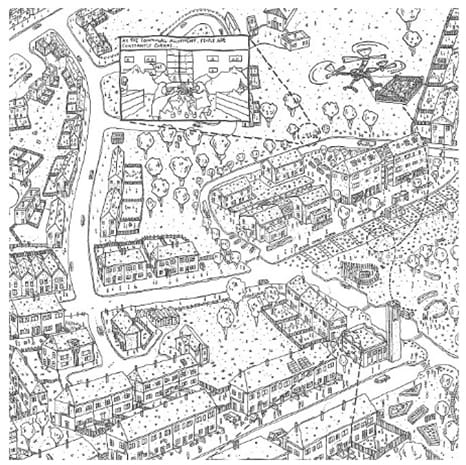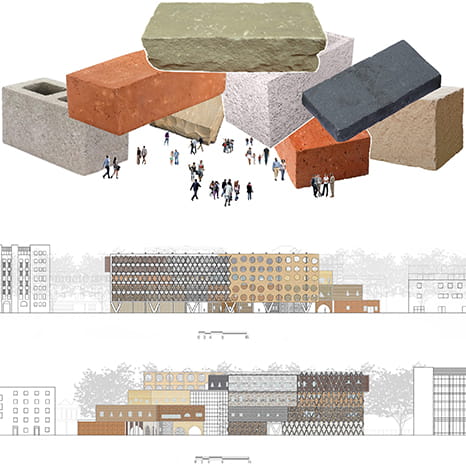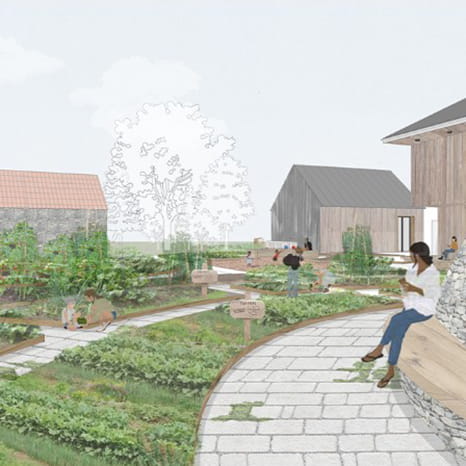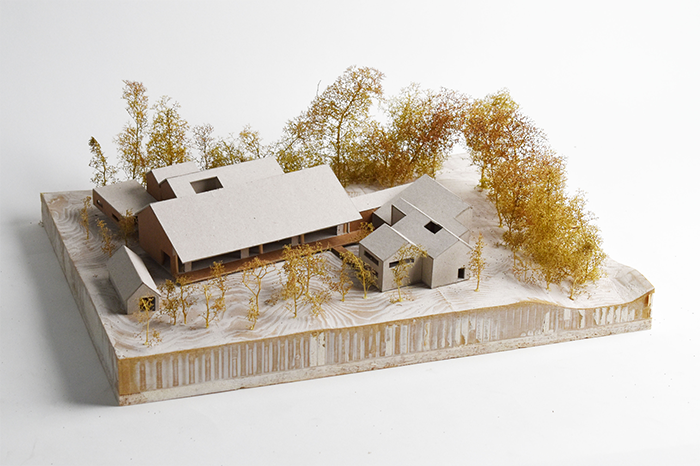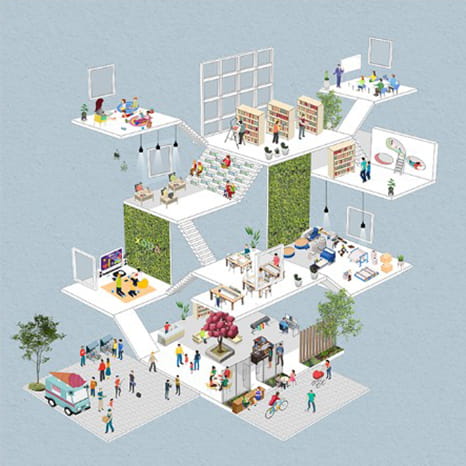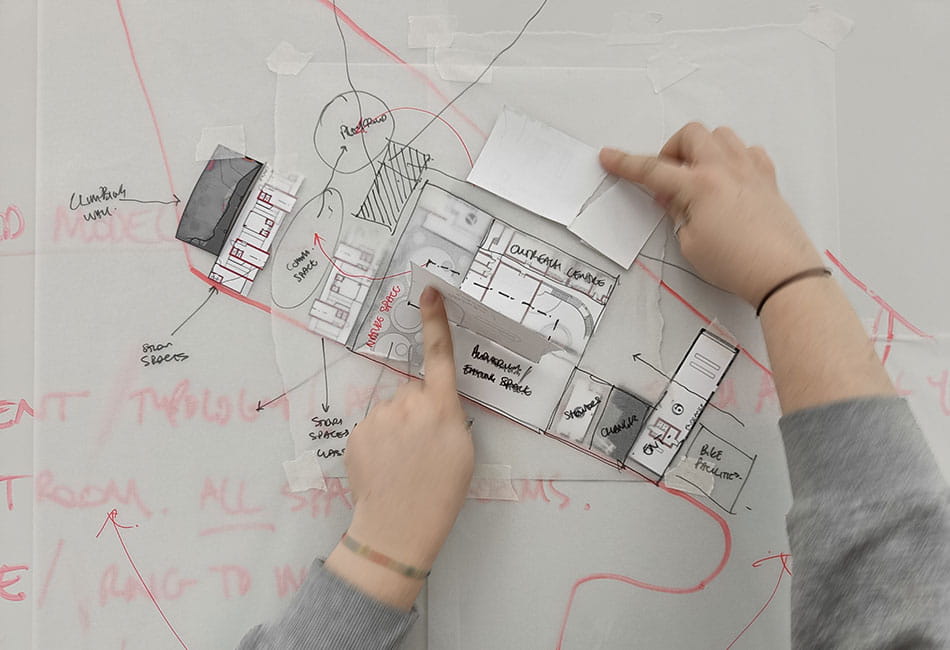
BSc(Hons) Architecture
This course is open for applications
92% of Architecture students are satisfied with the teaching of their course overall.Guardian University Guide 2026
About
Our BSc(Hons) Architecture course is accredited by RIBA Part 1 qualification. Learn through hands-on studio work, live projects, and fieldwork, focusing on sustainability, inclusivity, and innovation.
Why study an architecture degree?
Our dynamic, three-year BSc(Hons) Architecture course is designed for those who are passionate about shaping the built environment while protecting the planet. You'll explore the relationship between design ambition and material reality, understanding both the craft and science of building.
Delving into construction principles, materials, and innovative building technologies, you'll learn to conceptualise impactful designs and bring your visions to life. Engage with concepts like climate resilience, regenerative design, and urban inclusivity, and develop the skills to create architectural projects that meet the needs of diverse communities, on a local and global scale.
Why UWE Bristol?
Our Architecture degree course will set you on the path to becoming a registered architect and will prepare you for professional practice. Our BSc(Hons) Architecture course is accredited by the Royal Institute of British Architects (RIBA) for Part 1 qualification.
UWE Bristol's Architecture curriculum prioritises sustainability, inclusivity and innovation, equipping you to tackle environmental, societal, and cultural challenges. You'll learn to apply theory to hands-on studio work, technical workshops and live projects, giving you real-world practical skills and experience to tackle the complexities of contemporary construction.
Where can it take me?
By the end of the course, you'll achieve a RIBA Part 1 qualification (subject to validation), laying the foundation for Architects Registration Board (ARB) recognition at Master's level. If you choose to progress to Master's level, this will enable you to advance towards ARB Academic and Practice Competencies, RIBA Part 2, and beyond.
As a graduate, you'll be equipped with the critical, creative, and technical skills essential for contemporary architectural practice, preparing you for an impactful career. You could go on to work in a range of architecture settings, from private practices, consultancies and design firms to government agencies, local authorities and non-profit organisations.
The image above shows the fantastic work from one of our students (Laurence Cole, 2023 Architecture graduate).
Student showcase
Watch: Welcome to the School of Architecture and Environment at UWE Bristol
Entry
Typical offers
You will need to meet the following Level 2 requirements:
- GCSE: Grade C/4 in English and Mathematics, or equivalent.
In addition to the above Level 2 qualifications, you'll need to achieve the published tariff points from your Level 3 studies prior to entry. Below is an indicative list of the main qualification types. However, we will consider any Level 3 qualifications towards meeting our entry requirements.
- Tariff points: 136
- Contextual tariff: See our contextual offers page.
- English Language Requirement:
International and EU applicants are required to have a minimum overall IELTS (Academic) score of 6.5 with 6.0 in each component (or approved equivalent*).
*The University accepts a large number of UK and International Qualifications in place of IELTS. You can find details of acceptable tests and the required grades you will need in our English language section. Please visit our English language requirements page.
- A-level subjects: No specific subjects required.
- EDEXCEL (BTEC) Diploma: No specific subjects required. Please list the units you are taking in your application. For further advice on acceptable units please email us.
For information on required Guided Learning Hours please see our minimum entry requirements page.
- Access: No specific subjects required.
- Baccalaureate IB: No specific subjects required. We accept the IB Career-related Programme in conjunction with other Level 3 qualifications.
- Irish Highers: No specific subjects required.
- Welsh Baccalaureate: We accept tariff points achieved from the Advanced Skills Baccalaureate Wales in conjunction with other Level 3 qualifications.
- Cambridge Technical: No specific subjects required.
- T Levels: No specific subjects required.
Entry requirements
If you don't meet the entry requirements, you may be eligible for Architecture (with Foundation Year) - BSc(Hons) - UWE Bristol: Courses
International applicants
For country specific entry requirements please find your country on the country information pages. If you are an international student and do not meet the academic requirements to study this course, you can qualify by completing preparatory study at our International College.
If you are applying to study at UWE Bristol and require additional support to meet our English language requirements, you may be able to attend one of our pre-sessional English courses. Read more about our Pre-sessional English Programme.
Read more about entry requirements.
How to apply
Read more about undergraduate applications.
Read more about international applications and key international deadline dates.
For further information
- Email:
UK applicants
Admissions@uwe.ac.ukInternational/EU applicants
International@uwe.ac.uk - Telephone:
UK applicants
+44 (0)117 32 83333International/EU applicants
+44 (0)117 32 86644
Structure
Content
You'll study:
Studio 1.1 - Form and Context
You'll explore foundational architectural design through analogue techniques like hand-drawing and physical model-making, emphasising iterative processes, spatial awareness, materiality, and contextual responsiveness for design development.
Studio 1.2 - People and Environment
You'll be challenged to design a small building that engages meaningfully with its environment, users, and community. Integrating analogue and digital techniques to develop human-centric architectural proposals.
Contexts of Architecture 1 - Cities and Society
You'll examine the foundational principles of architectural history and cultural contexts that shape our built environment, exploring the interplay between architecture, events, society, and diverse cultural perspectives.
Professional Principles and Digital Practice
You'll learn the foundation principles of architectural practice and digital representation, exploring professional responsibilities, ethics, and software for effective architectural communication.
Making Sustainable Architecture
You'll study how buildings interact with their environmental contexts, getting to grips with sustainable architectural design principles, exploring structural technologies, passive strategies, material selection, and energy performance for environmental responsibility.
You'll study:
Studio 2.1 - Living
You'll explore housing design principles and practices, addressing socio-political, environmental, and cultural contexts through typological variety, spatial adaptability, and user-centred approaches.
Architecture Studio 2.2
You'll bridge academic study with professional practice through live projects addressing community needs, environmental concerns, and social responsibility in architecture.
Environmental Design Strategies and Innovations
You'll advance your understanding of environmental design, sustainable construction systems, and innovative building techniques. Exploring how we can address today's and tomorrow's pressing global challenges.
Collaboration and Coordination
This module emphasises the development of technical proficiency alongside teamwork and real-world application. You'll explore professional standards, including sustainability, health and safety, and regulatory compliance, aligning your learning with industry workflows and the RIBA Plan of Work.
Contexts of Architecture 2 - Histories and Theories
Building on the foundational principles introduced in earlier years, this module extends your knowledge of architectural history and theory while emphasising the cultural, political, and technological forces that have shaped contemporary practice.
Optional modules:
International academic placement year (if applicable)
If you take the international academic placement year, you'll spend a year away from the University studying overseas at one of our partner universities. You'll also complete the International Academic Year module before returning for your final year.
You'll study:
Employability, Ethics, and Enterprise
You'll prepare for architectural practice by exploring ethical principles, statutory requirements, and practice management strategies, developing your professional identity and vital employability skills.
Critical Contexts
You'll carry out an independent research project into a subject that combines your individual interests with your professional ambitions. You'll connect theory with practice, exploring architectural, cultural and technological challenges.
Connected Construction and Digital Design
You'll gain advanced knowledge and skills in construction technologies, digital workflows, and sustainability - so you can develop sophisticated and technically robust architectural projects.
Architecture Studio 3
You'll carry out research-driven and experimental design development, critically and creatively addressing complex and multi-faceted architectural briefs. Developing the critical thinking skills needed for professional practice.
The University continually enhances our offer by responding to feedback from our students and other stakeholders, ensuring the curriculum is kept up to date and our graduates are equipped with the knowledge and skills they need for the real world. This may result in changes to the course. If changes to your course are approved, we'll inform you.
Learning and Teaching
Our teaching approach emphasises hands-on learning and real-world application. You'll spend around 15 hours a week engaging in face-to-face activities, including lectures and seminars, supplemented by independent learning. Through this mix of scheduled teaching and self-guided study, you'll explore themes like sustainability, urban design, and building technology.
Studio-based teaching is complemented by live design projects and community-based collaborations, enabling you to apply theory to practice and gain practical experience in addressing architectural challenges. You'll also complete fieldwork, offering you exposure to diverse built environments to enrich your understanding of architecture.
See our full glossary of learning and teaching terms.
Study time
To become a qualified architect, you need three academic qualifications and two years of relevant practice. You'll need an RIBA Part 1 qualification (three year long undergraduate level) and to follow that with an ARB/RIBA part 2 qualification (two year long postgraduate level). You'll also need to complete two years of experience in practice (one of which can be between parts 1 and 2) and you'll then need to do an ARB/RIBA Part 3 qualification.
Assessment
Assessments are designed to mirror professional practice, helping you build critical skills and confidence. Your design projects will challenge you to apply theoretical knowledge in real-world contexts, while your oral presentations and design reviews will develop your communication skills. You'll also create portfolios to showcase your design progression and technical skills.
Your written assessments, including essays and case studies, will deepen your understanding of architectural theory and sustainability. You'll also get hands on with practical live projects and collaborative assignments, allowing you to engage with community and industry stakeholders, as you will in your career.
Fees
Full time course
Indicative Additional Costs
Supplementary fee information
The UK Government has announced that the Undergraduate tuition fee cap for home students (including offshore) will increase every year in line with inflation. Legislation still needs to be passed for this increase to happen so the above home and offshore fees for 2026/27 are likely to increase should legislation be passed. Any tuition fee which is impacted by this change will be updated following Government approval.
Find out more about the new higher education reforms.
Additional costs
This refers to items you could need during your studies that aren't covered by the standard tuition fee. These could be materials, textbooks, travel, clothing, software or printing.
Features
Professional accreditation
Our BSc(Hons) Architecture course is accredited by the Royal Institute of British Architects (RIBA).
On successful completion of our BSc(Hons) Architecture course, you'll gain a Part 1 qualification by the Royal Institute of British Architects (RIBA). This will allow you to progress towards RIBA Part 2 and Architects Registration Board (ARB) recognition, through further study at master's level, your first step to becoming a registered architect.
This course is currently, and will continue to be, subject to validation by the RIBA at Part 1. The RIBA will continue to validate architecture qualifications at Parts 1, 2 and 3. These are terms developed by the RIBA and its three-part validation pathway forms the typical route to RIBA Chartered Membership.
Placements
To give you a broader perspective on architecture there are opportunities to study overseas with one of our partner universities for one year on our well-established international academic placement year.
Throughout the Architecture degree, you'll develop your portfolio with a series of design projects. Some will be live briefs, working with the community and Bristol's Architecture Centre.
Students who get work experience tend to graduate with better degrees. Experience also hones your skills, industry knowledge and professional network, making you highly employable on graduation. We therefore strongly encourage you to gain work experience through relevant work or internships during vacations.
Fieldwork
We arrange day trips so you can visit study locations and meet people that can inform your work. We also arrange residential field trips locally, nationally and internationally.
Study facilities
Our industry-standard facilities include design studios, workshops, and digital labs equipped with the latest digital tools like CAD, BIM, and GIS software. We offer skills workshops to ensure you stay up to date with the latest design software.
Our inclusive learning environment supports diverse learning needs and fosters a sense of community. You'll have access to lecture recordings, assignment submissions, and collaborative workspaces through digital platforms like Blackboard.
Learn more about UWE Bristol's facilities and resources.
Take a personalised virtual tour of the Architecture facilities and experience what a typical day could look like here for you.
Showcase your work
In your final year, showcase your work to prospective employers and the public at the annual degree show.
Personalised virtual tour
There's no need to visit us in person to explore our facilities and campuses. Take a personalised virtual tour and discover it all for yourself from wherever you are.
Take a virtual tourCareers
Careers / Further study
By the time you graduate from our BSc(Hons) Architecture course, you'll be well-prepared for a broad range of careers in architecture. You'll be equipped with the skills to pursue professional accreditation, progressing towards RIBA Part 2 and ARB recognition through further study at master's level.
Our Architecture degree emphasises sustainability, ethical practice, and interdisciplinary collaboration, making you desirable to employers who are addressing global challenges like climate change and urban resilience. You'll develop design skills that respond to broader environmental, social, and economic contexts, enabling you to think critically and creatively.
Hands-on learning through studio work, live projects, and community collaborations ensures you graduate with relevant practical experience and professional readiness. You'll engage with real-world issues, working directly with agencies and industry stakeholders to develop critical professional skills.
Whether you choose to specialise in architecture or a related field, you'll have the foundation to pursue lifelong learning and impactful careers. Our course prepares you to address the needs of society, clients, users, and the environment, drawing on the interdisciplinary strengths of our School of Architecture and Environment.
Our graduates are known for their ability to create context-sensitive and impactful solutions. You'll be prepared to design inclusive, healthy, and sustainable places for future societies, making meaningful contributions to the built environment.
As an architect, you could work in private practices, design firms, or government agencies, creating innovative and sustainable buildings. Your planning skills will open doors to roles in local authorities, private consultancies, and non-profit organisations, where you'll shape urban development and advocate for responsible design practices.
Get inspired
Our award-winning careers service will develop your employment potential through career coaching and help you to find graduate jobs, summer placements and global opportunities.
We can also help you to find local volunteering and community opportunities, provide support for entrepreneurial activity and get you access to employer events.
Visit our employability pages to learn more about careers, employers and what our students are doing six months after graduating.
Life

Accommodation
An excellent range of options for all of the Bristol campuses and the city centre.

Bristol
A stunning city for student living with all the qualities to make you want to stay.

Sports, societies and activities
There is more to your experience here than study. Choose to make the most of it and try new things.

Health and Wellbeing
We provide support in the way you need it.

Campus and facilities
Discover our campuses and the wealth of facilities provided for our students.
